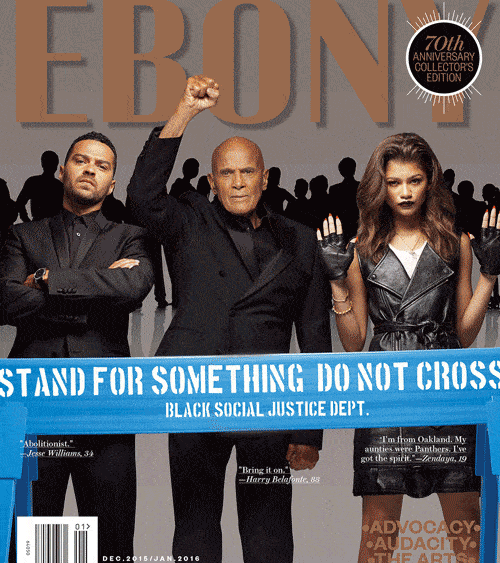[ad_1]
The African-Americans of the 2010s
The start of the 2010s found America in the throes of an economic recession as a result of the Housing Market Collapse of 2008. President Barack Obama was serving his first term in office, facing Republican majority in both the House and the Senate. Flash mobs were happening with surprising–if not disturbing—regularity, many of them posted on social media. With the release of its first iteration of the iPad, Apple changed the face of technology again, and social media gained a new platform called Instagram. For the first time in its history, America would have access to universal health care when The Patient Protection and Affordable Care Act, known informally as Obamacare, was signed into law.
As it had in the past, when events relevant to African-Americans and their allies unfolded, EBONY brought the discussion to its readers.
In 2011, 10 years after the attacks of 9/11, U.S. forces would capture and kill Osama bin Laden, the Al-Qaeda mastermind behind the attacks, preceding the end of the war in Iraq. In its February 2012 issue, an EBONY exclusive featuring African-American four-star Gen. Lloyd Austin, who completed three tours of duty in Iraq and was responsible for many of America’s successes there, revealed his unique perspective on and hope for the future of the Iraqi people. In honor of the final mission of Atlantis and the end of NASA’s space shuttle program, EBONY published an interview with Black astronauts Leland Melvin and Robert L. Satcher in its April 2010 issue in which both men discussed their journey into space in November 2009 for an 11-day mission aboard Atlantis.
The senseless murder of Trayvon Martin, a teenage boy who was executed on his way home from the local 7-Eleven by a bigoted neighbor in Florida, shocked and grieved African-Americans. Grief turned to outrage when Trayvon’s killer was found not guilty, a verdict reminiscent of the Rodney King verdict in the ’90s and with a similar emotional fallout. EBONY led the national debate on racial profiling and civil rights, rallying support for the slain teen and his family with a series of covers for its September 2013 issue, featuring celebrity fathers and their sons, donning hoodies, with the prominent caption, “We Are Trayvon,” entreating Black people to “save our sons” and to “join the movement to change America.”
EBONY has not shied away from ugly stories even when beloved figures stood accused. After multiple women came forward to accuse Bill Cosby, who has appeared on several covers of the publication, of sexual assault, only EBONY could have explained with such sensitivity and depth the mixed reactions of the Black community as it struggled to reconcile the accusations against Bill Cosby the man with the affection it has long felt for Cliff Huxtable the character.
During this decade, EBONY has celebrated beginnings, farewells and anniversaries. Two years before he won the 2017 Oscar for Best Supporting Actor in his performance in Moonlight, EBONY recognized the style and talent of Mahershala Ali. Whitney Houston, Prince and Muhammed Ali were honored posthumously with specially dedicated issues. The opening of the Smithsonian National Museum of African American History and Culture was spotlighted in the September 2016 issue. And when President Obama, two former U. S. presidents, and 100,000 other guests celebrated the commemoration of the 50th anniversary of Martin Luther King Jr.’s “I Have a Dream” Speech at the Lincoln Memorial and National Mall in Washington, D.C., EBONY celebrated with them. Finally, as the nation counted down the last days of what was arguably the most historic U.S. presidency to date, EBONY created special a publication to honor our commander in chief and to pay homage to his eight years of African-American excellence.
Whether we were called colored or Negroes, whether we identified as Black, Afro-Americans or African-Americans, we have looked to the pages of EBONY to see ourselves represented accurately, beautifully, fairly. As we look to the future, we can build on the lessons of the past as presented to us in the pages of EBONY with the assurance that we will not only survive whatever the future presents, but that we also possess the means to craft one where all are free to thrive.
BLACK HISTORY FROM THE PAGES OF EBONY
VIEW THE ENTIRE BLACK HISTORY MONTH SERIES
AFRICAN-AMERICANS IN THE OBAMA ERA
THE AFRICAN-AMERICANS OF THE 1990S
THE BLACK AMERICANS OF THE 1980S
[ad_2]
Source link

